[vc_row][vc_column][vc_column_text]
For Me
The “Rapture”
Is Up in the Air!
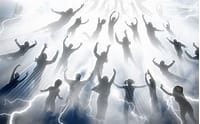 A Serious and Sincere Study of
A Serious and Sincere Study of
The Second Coming of Christ
and
The Rapture of the Church
By Donald Shoemaker
PART ONE: My Journey away from Dogmatism
PART TWO: The Second Coming of Christ and the Rapture of the Church in the Apostle Paul’s Thessalonian Letters
PART THREE: The Second Coming of Christ and the Rapture of the Church – Some Helpful Studies, Reflections and Conclusions
A Word from Dr. D. Brent Sandy in Support for this Study…
“Don Shoemaker’s excellent exegesis pertaining to the rapture and tribulation underscores an important point: we may not have a clear understanding of how some prophecies will unfold. Actually, that should not be surprising. An examination of the prophecies that had already been fulfilled during the biblical period reveals that few were understood until after the events occurred. As Jesus himself said, ‘I have told you now before it happens, so that when it does happen you will believe’ (John 14:29). So if you want a fresh look at some key prophetic passages, especially in 1 and 2 Thessalonians, take time to read the following essay. If not, you may be sorry someday when ‘the times and seasons’ don’t unfold the way you predicted.”
~ D. Brent Sandy, Ph.D. Duke University. Professor for 25 years at Grace College and Seminary; most recently, professor for 10 years at Wheaton College. Author or editor of six books, including Plowshares and Pruning Hooks: Rethinking the Language of Biblical Prophecy and Apocalyptic (InterVarsity Press).
About the Writer…
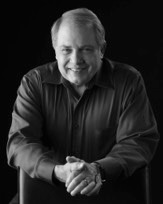 Don has been a member of the clergy in the Long Beach, California area since
Don has been a member of the clergy in the Long Beach, California area since
1970. He now serves as Pastor Emeritus of Grace Community Church of Seal
Beach (where he was senior pastor 1984-2012) and as Senior Chaplain of the Seal
Beach Police Department (2001+). He previously was an assistant professor of Biblical Studies at Biola University (1976-84) and chaired the Social Concerns
Committee in the Fellowship of Grace Brethren Churches from 1985 to 2019.
His graduate work includes a Master of Divinity from Grace Theological Seminary, a Master of Theology from Fuller Theological Seminary with a concentration in Christian ethics, and a Doctor of Ministry from American Baptist Seminary of the West (now Berkeley School of Theology) with a concentration on the Charismatic Movement. His law school studies included a course on the First Amendment. He and his wife Mary have been married for over 55 years. They have two children and six grandchildren.
© 2022 Donald P. Shoemaker
All Scripture quotations, unless otherwise indicated, are taken from the Holy Bible, New International Version®, NIV®. Copyright ©1973, 1978, 1984, 2011 by Biblica, Inc.™ Used by permission of Zondervan. All rights reserved worldwide. www.zondervan.com The “NIV” and “New International Version” are trademarks registered in the United States Patent and Trademark Office by Biblica, Inc.™
Permission to reproduce this essay is gladly granted, subject to the following condition: Make exact copies of all 29 pages, with no deletions, additions or other modifications.
[/vc_column_text][/vc_column][/vc_row][vc_row][vc_column][vc_column_text]PART ONE: My Journey away from Dogmatism
In my early Christian experience it was a “given,” as surely as “Jesus died for our sins” is a “given,” that the “Rapture of the Church” would precede a 7-year Great Tribulation on earth. This is what, I was sure, the Bible taught as a key feature of “the End Times.”
During the Tribulation period “The Antichrist” will dominate the world and persecute the People of God (converts to Jesus during that period). At the end of this Tribulation, Jesus will return with his raptured church to earth from heaven in power and great glory, to judge those living at that time and to inaugurate his Kingdom on earth (“The Millennium”).
In short, the “Church” will be absent from the world during the Tribulation period when the Antichrist rules. We had charts that made this clear. In fact, I made my own chart from 20 feet of meat wrapping paper taken from the grocery store where I worked. I hung it up at the front of each church service during my summer-long series of prophecy sermons!
This teaching was as certain to me as “God so loved the world that he gave his onlybegotten Son.” The “Pre-trib Rapture of the Church” was locked into innumerable doctrinal statements in churches, Christian schools and ministries. I once saw a church’s list of membership requirements. One said you had to believe that a list of prophetical events like the Rapture would happen in exactly a certain order or you could not join that church.
I expressed such thinking once in a parody of a Gospel Song. Try singing it at your church!
When He shall come with trumpet sound I’ll leave ere Satan stalks the ground.
The “times and seasons” will unfold
Just like our charts have long foretold.
But this doctrinaire eschatology began to unravel in my mind over time. Briefly:
1. I made some words of Jesus central to my thinking about prophecy: “It is not for you to know the times or dates the Father has set by his own authority” (Acts 1:7).
2. As my circles of Christian fellowship and academic study grew broader, my understanding of what is theologically and spiritually essential relaxed (some would call this a spiritual problem rather than healthy growth). I also came to realize I had not been exposed to alternate views on prophecy very objectively.
3. I once took a week to read two books on the Rapture with two different views:
(1) The Rapture Question by John Walvoord (teaching a pre-tribulation Rapture) and
(2) The Blessed Hope by George Ladd (teaching a post-tribulation Rapture). I found Ladd’s spirit to be one of gracious academic inquiry and Walvoord’s teaching to be…well, I thought, “Aren’t there any better proofs than these?”
4. I became convinced there needed to be a “hierarchy” of doctrinal positions. Namely,
(1) essential doctrines, core teachings that are scriptural beyond a reasonable doubt;
(2) likely doctrines, which seem supported by a preponderance of biblical evidence; (3) less certain areas of belief, where (so far as prophetic teaching is concerned) we’ll have to “wait and see.”
We don’t need to get in a tizzy over #3 things, as if “The Faith” sinks or swims over them.
(As one example, I’d place Holy Communion as an ordinance the church should observe as a #1 teaching; the exact understanding of its sacramental significance as a #2 teaching; and decisions such as how [wine or juice, with or without a meal?], or when Communion is to be observed [weekly or monthly or…?] into #3 category of teachings.)
I know some think “all doctrines are equal and level” and “the more spiritual you get, the deeper your certainties become.” But this isn’t good thinking. The Apostle Paul set forth flexible application of doctrine to ministry (1 Corinthians 9:19-22) and non-judgmentalism in observances for the sake of church unity (Romans 14). Both of these required doctrinal assessments on Paul’s part. Paul also set forth a major caution that should give us pause (“Now we see only a reflection as in a mirror; then we shall see face to face. Now I know in part; then I shall know fully, even as I am fully known.” – 1 Corinthians 13:12).
At this point I offer a perspective on “doctrinal hierarchy” set forth in a recent book by Gavin Ortlund, Finding the Right Hills to Die On—The Case for Theological Triage (p. 19).
• First-rank doctrines are essential to the gospel itself.
• Second-rank doctrines are urgent for the health and practice of the church such that they frequently cause Christians to separate at the level of local church, denomination or ministry.
• Third-rank doctrines are important to Christian theology, but not enough to justify separation or division among Christians.
• Fourth-rank doctrines are unimportant to our witness and ministry collaboration.
• Fourth-rank doctrines are unimportant to our witness and ministry collaboration.
When it comes to prophecy issues, I would make the Second Coming of Christ, Resurrection and Final Judgment first-rank doctrines. I would place the debates over the Millennium (the extent to which God’s Kingdom is “already here” or “not yet” and the details of a Millennium before/after Jesus’ return) into the second or third rank. I would place debates over the timing of the Rapture as it relates to the Tribulation and various other “prophetic happenings” into the third or fourth rank.
A closing comment at this point: Christian orthodoxy confesses in the words of the Nicene Creed (AD 325), “one holy catholic and apostolic church.” This teaches me that a doctrine worth our strong embrace is grounded in apostolic teaching and broadly held throughout the orthodox (small “o”) Christian world.
Any so-called “Bible prophecy insight” that pops up late in time within a narrow segment of the Christian community fails these tests.
PART TWO: The Second Coming of Christ and the Rapture of the Church in the Apostle Paul’s Thessalonian Letters
In “Part One”I shared my movement away from a doctrinaire “Pre-tribulation Rapture” view toward (1) greater openness on the subject and (2) the observation that this subject is not a “Truth of the First Order” where we can speak with certainty. Rather, it is a “level three” or “level four” teaching, which carries less certitude and shouldn’t divide us.
In “Part Two”we will see how Paul’s two letters to the Thessalonian Christians contain an amazingly high amount of teaching on the Second Coming of Jesus. They also contain a surprisingly small amount of teaching (twice) on the Rapture, especially in view of how huge this teaching is in some circles. This is significant in light of the fact that the Rapture is likely taught nowhere else in the Bible (possible exceptions: Matthew 24:30-31 and John 14:3, where Jesus’ return to receive his own is mentioned but without details).
In this part I’ll review the seven references to the Second Coming and the Rapture in 1 and
2 Thessalonians. Do these texts together support or lean toward the idea of the Second Coming being one comprehensive event? Or do they lead us to think of a separate “Second Coming A” (the Rapture) and a “Second Coming B” (the Revelation)?
Some points on the church at Thessalonica as we begin. It was a good congregation, dear to the Apostle Paul’s heart. It was founded by Paul during his second missionary journey after he entered today’s Europe for the first time (Acts 17:1-9). Shortly after, he travelled to Corinth and established a church there, remaining there for 18 months. During this extended period, he wrote his letters to the Thessalonians, in part to address some confusion in their minds over the Second Coming and to put their hearts at ease. Even good congregations can have some confusion! We may date these letters around AD 49-52.
1 Thessalonians 1:9-10 (New International Version) – “…you turned to God from idols to serve the living and true God, and to wait for his Son from heaven, whom he raised from the dead—Jesus, who rescues us from the coming wrath.”
• True conversion is both a turning away from something (idolatry here) and a turning toward something. These new Christians turned their hearts toward God and their hope toward Jesus’ return from heaven. The Second Coming must be, for believers, an anticipated event full of encouragement to good works.
• Jesus’ return will mean deliverance from “the coming wrath”—the rescue is so certain that Paul describes Jesus with a present participle (hruómenon – “who rescues us”). In Paul’s writings, “wrath” is God’s justified and appropriate actions of judgment against all evil and all who set themselves against him (Romans 1:18; 2:5, 8; 3:5; 4:15; 5:9; 9:22; 12:19) unless the context indicates otherwise (Romans 13:4-5, speaks of the just wrath of the magistrate against evildoers, but even this can be seen as an extension of God’s wrath). “Wrath” here is not the wrath of the Devil or the Antichrist. See comments on 1 Thessalonians 5:9.
1 Thessalonians 2:19-20 – “For what is our hope, our joy, or the crown in which we will glory in the presence of our Lord Jesus when he comes? Is it not you? Indeed, you are our glory and joy.”
• Jesus taught us to use our resources to win others so they might welcome us into eternal dwellings (Luke 16:9). So here, Paul labored to win people to Christ and establish them in their faith, so he might glory in Jesus’ presence with them.
• Paul here uses the word “parousía” for Jesus’ coming. We find it six times in the Thessalonian letters and once in 1 Corinthians 15:23. As we will see, it is one of three words Paul uses for the Second Coming. It can mean “arrival” or “presence.” F. F. Bruce says the word was used to describe “the official visit of a high-ranking personage to a province or city, when he was met on his approach by a deputation of leading citizens who escorted him formally for the remainder of his journey” (p. 57).
1 Thessalonians 3:13 – “May he strengthen your hearts so that you will be blameless and holy in the presence of our God and Father when our Lord Jesus comes with all his holy ones.”
• The Second Coming, properly taught (without lots of speculation), both requires and induces holiness of life (being prepared and watchful for his coming). Here is a prayer that we will be holy on that Day. Perhaps the idea of accountability at the judgment is in view (“For we must all appear before the judgment seat of Christ, that each one may receive what is due him for the things done while in the body, whether good or bad.” – 2 Corinthians 5:10; see Romans 14:10).
• “Parousía” appears for the second time, translated “comes” (NIV), literally, “in the coming of our Lord Jesus.”
• Jesus will come “with all his holy ones.” This may refer to angels (“…he comes in his Father’s glory with the holy angels”—Mark 8:38; Luke 9:26; 2 Thessalonians 1:7).
Or it may refer to the saints who will accompany Jesus when he returns (Revelation 19:14). The point would be, the Thessalonian believers will be “blameless and holy” and thus able to join the company of saints who will accompany Jesus. Robert Gundry sees this as a reference to deceased believers who will accompany Jesus when he returns, as in 1 Thessalonians 4:14 (Commentary on the New Testament, pp. 818-21).
• When will we be “blameless and holy in the presence of our God and Father”? If we accept a distinction between the Rapture and the Revelation of Jesus (second comings “A” and “B”) it seems we would say this could occur at either one or the other, unless “holy ones” refers to angels, in which case it occurs at the Revelation of Jesus. If we don’t accept the notion of a Second Coming in two phases, then of course we would say this will occur at the post-tribulational Second Coming.
1 Thessalonians 4:13-18 – “13 Brothers and sisters, we do not want you to be uninformed about those who sleep in death, so that you do not grieve like the rest of mankind, who have no hope. 14 For we believe that Jesus died and rose again, and so we believe that God will bring with Jesus those who have fallen asleep in him. 15 According to the Lord’s word, we tell you that we who are still alive, who are left until the coming of the Lord, will certainly not precede those who have fallen asleep. 16 For the Lord himself will come down from heaven, with a loud command, with the voice of the archangel and with the trumpet call of God, and the dead in Christ will rise first. 17 After that, we who are still alive and are left will be caught up together with them in the clouds to meet the Lord in the air. And so we will be with the Lord forever. 18 Therefore encourage one another with these words.”
These verses are the first part of a long and very significant passage in 1 Thessalonians about the Rapture and the Second Coming. The second part is chapter 5, verses 1-11. I’m leaving the verse indicators intact in these longer passages. The chapter break is unfortunate, for it separates the second part from the much-more familiar first part.
First Part: Comfort replaces uninformed grief
• (13) As the first generation of Christians began to pass, living Christians understandably wondered how those who died would share in the blessings of Jesus’ return. Paul assures them of a hope not shared by those whose worldview omits any thinking about God and the afterlife.
• (14-15) Far from missing out on the hope, these who have “fallen asleep in him” will rise from the dead and be joined with Jesus in their glorified bodies (alternate view: the souls of deceased believers will accompany Jesus and be reunited with their bodies, which are then raised glorified). Those alive when Jesus returns will gain glorified bodies by being “changed” without dying (1 Corinthians 15:50-54).
• (15-17) A verbal record of something Jesus taught or a revelation from the Lord Jesus to Paul brought assurance that those dead when Jesus returns will not be at any disadvantage. Indeed, they will rise first and the living will have to catch up!
• (16) This will be a very loud event (far from a “secret rapture”—see comment for 5:2, 4 below). First a loud command (that could wake the dead! See John 11:38-44 for Jesus’ loud command at the tomb of Lazarus.). The archangel’s voice and a trumpet call follow.
• (17) Living saints are “caught up” with resurrected saints to meet the Lord in the air and are (together) forever with the Lord. But where? The text doesn’t say up or down, whether Jesus turns around or the saints turn around! The verb “caught up” (harpazein) suggests a strong action, often (not always) to the benefit of the one “caught up.” In Acts 23:10, Roman soldiers “caught up” Paul to save him from an angry crowd. Paul writes of a man “caught up” into Paradise (2 Corinthians 12:2, 4). In Revelation 12:5, the (Christ) child is “caught up” to God’s throne to save him from the dragon, which planned to devour him.
• I. Howard Marshal (p. 131) says, “The Greek word used here [apantesis, ‘to meet’] probably carries an allusion to the way in which a visiting dignitary might be met on the way to a city by a representative group of citizens who would then escort him back to the city.” When Paul arrived in Italy (Acts 28:15), some believers in Rome came “to meet” him and escort him to Rome. This would support the idea that the Rapture is part of the glorious Second Coming where Jesus returns to earth accompanied by the saints. The Rapture would thus be post-tribulational.
However, F. F. Bruce cautions (p. 103), “But there is nothing in the word ‘apantesis’ or in this context that demands this interpretation. It cannot be determined from what is said here whether the Lord (with his people) continues to earth or returns to heaven.” Cautious interpretation suggests that we not draw a firm conclusion “pre” or “post” from these verses. Leon Morris wisely says (p. 87), “This is the fullest description of the Parousia in the New Testament, and when we reflect on the little that is said here we are warned against being unduly dogmatic about what will then happen.”
• The word “Rapture” comes from the Latin Bible’s verb for “caught up” (“rapio”).
• (18) The main point: “Take heart! The dead will rise and meet the Lord!”
1 Thessalonians 5:1-11 – “Now, brothers and sisters, about times and dates we do not need to write to you, 2 for you know very well that the day of the Lord will come like a thief in the night. 3 While people are saying, “Peace and safety,” destruction will come on them suddenly, as labor pains on a pregnant woman, and they will not escape.
4 But you, brothers and sisters, are not in darkness so that this day should surprise you like a thief. 5 You are all children of the light and children of the day. We do not belong to the night or to the darkness. 6 So then, let us not be like others, who are asleep, but let us be awake and sober. 7 For those who sleep, sleep at night, and those who get drunk, get drunk at night. 8 But since we belong to the day, let us be sober, putting on faith and love as a breastplate, and the hope of salvation as a helmet. 9 For God did not appoint us to suffer wrath but to receive salvation through our Lord Jesus Christ. 10 He died for us so that, whether we are awake or asleep, we may live together with him. 11 Therefore encourage one another and build each other up, just as in fact you are doing.”
Second Part: Alertness and sobriety replace sleeping and drunkenness
• (1)“Now” (perì dè) introduces a second subtopic in the subject of Jesus’ return. In essence, be prepared! “Times and dates” (krónōn kai kairōn) refers to the End Times and its high points. Jesus told his disciples that we cannot know the “times and dates” (same nouns as in Acts 1:7).
No matter, no problem—Christians have often tried to figure out “times and dates,” especially in the past 100+ years.
• (2-3) When “The Day of the Lord” arrives, most will not be prepared. Instead, they will be living as if it won’t happen and they are content with the illusion of “peace.” For them, “The Day of the Lord” will come like a thief and catch them by surprise.
• (4) Others will be prepared for this Day, awaiting it with eagerness and sober, godly living. For them, “The Day of the Lord” will NOT come like a thief, for they are ready.
• What is “The Day of the Lord?” It’s a day when God steps into human affairs to execute judgment and vindicate righteousness. The phrase may describe God’s judgment in history, like a locust invasion or army that called people to repentance (Joel 1 & 2). “The Day of the Lord” also looks ahead to God’s final intervention in human affairs—the “great and dreadful day of the Lord” (Joel 2:31; Acts 2:20). Many will be ready for that day but many others will not be—the key point of 1 Thessalonians 5:1-11.
• (2, 4) “Like a thief in the night” is sometimes used to describe a pre-tribulational secret rapture (“Second Coming A”) as opposed to Jesus’ glorious public coming (“Second Coming B”). A movie named “A Thief in the Night” came out in 1972, depicting a secret rapture that left a lawn mower running unattended and a razor buzzing in the sink because their users were suddenly and secretly raptured (apparently taking their pants with them). But this misses the point! The metaphor of a “thief” points to what is unexpected by the unprepared. It does not describe the nature of the Rapture. If Jesus’ return is to me “like a thief,” that’s my fault!
• (9) “For God did not appoint us for wrath, but to receive salvation…” The verse begins with “for” (hóti), giving a reason and incentive for us to maintain faith, hope and love (v. 8). Consistent with Paul’s use of the word “wrath” (orgé), Paul is here speaking of God’s wrath poured out on a world rejecting him. It does not refer to the “wrath” of the Devil (Revelation 12:12, using the word “thumós”) or other forces of evil we are forewarned to resist. The verse promises exemption from divine wrath rather than exemption from the Tribulation.
• There is a viewpoint known as “the pre-wrath rapture” theory—the Rapture will be near the end of the Tribulation before God casts his rapid severe judgments on the earth (Revelation 14:1-5, 14-16, chapters 15 & 16). This is not an unreasonable position, should the judgments proceeding from God’s “wrath” be so widespread and of such magnitude that Christ’s followers simply could not be exempt from them if they were around during that hour of judgment. But if we try to reconcile 1 Thessalonians 5:9 with Revelation 14-16, we must proceed with humble caution, insomuch as we don’t know “the times or the dates” of such happenings. We’ll see…
1 Thessalonians 5:23 – “May God himself, the God of peace, sanctify you through and through. May your whole spirit, soul and body be kept blameless at the coming of our Lord Jesus Christ.”
• Jesus’ church is full of “spots and wrinkles and blemishes” (Ephesians 5:27). As I grow older, I see these increasing on my body. But in a maturing church there should be fewer and fewer of these due to God’s cleansing and holiness-producing ministries for us. Our confidence in the Second Coming actually induces moral purity (1 John 3:2-3). On the Day of Jesus’ return this process will be complete.
• “Spirit, soul and body” are not three “parts” that comprise us (the doctrinal term for this is “trichotomy”) any more than loving God with all our “heart, soul, mind and strength” (Mark 12:30) means we have four parts. Rather, we are to love the Lord and be kept blameless through and through, with all our being.
• “The coming of our Lord” gives us the fourth use of parousía (“arrival, presence”) in these two letters (after 2:19, 3:13, 4:15). Paul doesn’t infer two parousias, but just one (with the definite article, “the coming,” which includes the Rapture).
2 Thessalonians 1:6-10 – “He will pay back trouble to those who trouble you 7 and give relief to you who are troubled, and to us as well. This will happen when the Lord Jesus is revealed from heaven in blazing fire with his powerful angels. 8 He will punish those who do not know God and do not obey the gospel of our Lord Jesus. 9 They will be punished with everlasting destruction and shut out from the presence of the Lord and from the glory of his might 10 on the day he comes to be glorified in his holy people and to be marveled at among all those who have believed. This includes you, because you believed our testimony to you.”
• This is clearly a reference to Jesus’ Second Coming in power and glory (“Second Coming B” if you follow that scheme). Its dramatic display for all to see is underscored by “revealed from heaven in blazing fire with his powerful angels.”
• Important point:It seems to me that the church’s relief from persecution (“relief to you who are troubled”) would be fulfilled at the Rapture* if it were pretribulational rather than at “Second Coming B.” But that is not what these verses say. Final relief from persecutors comes when Jesus is gloriously revealed, not before.
* Some golden daybreak, Jesus will come.
Some golden daybreak, battles all won.
He’ll should the victory, break through the blue… (C. A. Blackmore, 1934)
• “Revealed from heaven” introduces a new word describing the Second Coming— apokalúpsis. The word goes beyond “presence” (parousía) to convey Jesus’ very open manifestation in contrast to his present hiddenness. His lordship will be revealed in power and glory and he will openly dispense justice. It will be “pay back hour” for all who have persecuted the church (“those who trouble you”).
• Jesus will be “glorified” and “marveled at” by his saints who surround him. My thoughts go to Revelation 19:14 – “The armies were following him, riding on white horses and dressed in fine linen, white and clean” (Jesus’ bride has already clothed herself in “fine linen, bright and clean,” which are all her righteous acts—19:5-6). In fact, the whole openly glorious description of the Second Coming (Revelation 19:11-16) fits apokalúpsis quite well.
2. Thessalonians 2:1-8
This final passage on the Rapture and Second coming is clearly the most challenging! How we interpret it will pretty well determine whether we hold to a “pre-trib” or “posttrib” rapture. The whole context (2:1-12) is really the heart of 2 Thessalonians.
“Concerning the coming of our Lord Jesus Christ and our being gathered to him, we ask you, brothers and sisters, 2 not to become easily unsettled or alarmed by the teaching allegedly from us—whether by a prophecy or by word of mouth or by letter—asserting that the day of the Lord has already come.”
• Verse 1 is a beautiful summation of “the Rapture.” At this event, (1) Jesus will arrive (the parousía) and (2) his followers will be “gathered [episunagōgēs] to him.” The latter word is only used one other time in the New Testament—for the gathering of believers in worship assembly (Hebrews 10:25). It is also used in 2 Maccabees 2:7 for the regathering of Israel after her exile. These few words very nicely sum up the detailed teaching on the Rapture in 1 Thessalonians 4:15-17. The two passages are, as I said earlier, possibly the only references to the Rapture in the whole Bible.
• Even a very good church can be troubled by bad doctrine. This church risked being “unsettled” and “alarmed” by teaching purportedly from the Apostle Paul, who would now set their hearts at ease.
• The misleading teaching may have come by someone’s (false) word of prophesy, or by a report that Paul taught these things, or a misunderstanding of what he had taught when with them, or even by a letter claiming to be from him. Paul didn’t know. Whichever, what “word” was so disturbing? “The day of the Lord had already come.” If true, they had missed out on its blessings. If true, their hope for relief from sufferings and persecution was a false hope. There will be no relief!
• The return and gathering of verse 1 is referred to in verse 2 as “the day of the Lord.” It is wrong to separate, as some do, the “Rapture” from “the day of the Lord.”
“3 Don’t let anyone deceive you in any way, for that day will not come until the rebellion occurs and the man of lawlessness is revealed, the man doomed to destruction. 4 He will oppose and will exalt himself over everything that is called God or is worshiped, so that he sets himself up in God’s temple, proclaiming himself to be God.”
• Whatever was said by whatever means, Paul counters, “Don’t be deceived.” More than just saying, “Get over it!” he gives the reason why they need not be unsettled. Before the “coming of the Lord Jesus Christ,” before the “gathering together,” two events must happen first: (1) the rebellion (apostasía—“apostasy”) and (2) the revealing (apokalupsthē, a verb form of apokalúpsis) of “the man of lawlessness.” Since those haven’t happened, the day of the Lord cannot have happened either!
• I suggest these two happenings be viewed as related—one leading to the other. Great apostasy (moral, spiritual, doctrinal rebellion) welcomes the “man of lawlessness.” The soil of sin and falsehood readily receives the seed.
• A small number of interpreters (such as H. Wayne House) have said the word apostasía refers to the “departure of the saints in the Rapture.” As Charles Ryrie noted, this would be a clear text that the rapture precedes the Antichrist. But Ryrie and almost all “pre-trib rapture” teachers reject this interpretation.
• “The man of lawlessness” is also called “the man doomed to destruction” (literally, “the son of destruction”). Elsewhere in scripture he is the Antichrist (1 John 4:3) and the “beast out of the sea” (Revelation 13:1). At the Second Coming he will be overthrown by Jesus’ breath and destroyed by the splendor of his coming (verse 8).
• But until then, once he comes look out! He will be the archenemy of God and his people. He will exalt himself over God and even set himself up “in God’s temple proclaiming himself to be God.” Other scriptures point to his blasphemy and persecution of the saints and to the worship he will demand (Revelation 13:5-17).
• Does this text tell us that a temple to God will be built (in Jerusalem on the Temple Mount)? This idea has been floated for decades. If the Bible prophesies a new temple, this counters the claim by “pre-tribulation rapture” advocates that the Rapture will happen with no signs preceding it. What an awesome sign a new temple under construction would be! (I remember the electrified atmosphere on a seminary campus in 1967 when Israel’s army took over the Old City of Jerusalem!) How many years would it take for this temple to be proposed, agreed-to, designed and constructed and then for some time to pass before this “man of lawlessness” rises to occupy it? Certainly much of this project must precede a Rapture that would come (as many propose) 3½ years before this temple blasphemy occurs.
Yes, there were three actual desecrations of the Second Temple before the Romans destroyed it and the city in AD 70. But I’m prepared to see this reference to a “temple” as metaphorical of how “the man of lawlessness” will seek to displace God. Gordon Fee says, “By the time Paul wrote this letter the temple in Jerusalem no longer held any importance to him, except in a symbolic way to remind others of God’s past presence with his people.” (Is no “importance” an overstatement? Perhaps “no salvific importance.” His overall comment stands.) Furthermore, I find it highly unlikely that Paul would call a rebuilt temple in the End Times “God’s temple” in light of his (dispensational!) spiritualizing of the temple (1 Corinthians 3:16-17; 2 Corinthians 6:16; Ephesians 2:19-22; also note John 2:19-21).
5 “Don’t you remember that when I was with you I used to tell you these things? 6 And now you know what is holding him back, so that he may be revealed at the proper time. 7 For the secret power of lawlessness is already at work; but the one who now holds it back will continue to do so till he is taken out of the way. 8 And then the lawless one will be revealed, whom the Lord Jesus will overthrow with the breath of his mouth and destroy by the splendor of his coming.”
• (5-6) In this case, the church’s angst over the Day of the Lord was due to her forgetting what the apostle had taught in person. She just needed to be reminded. Our limitation is we don’t know all that Paul taught them. For a big example, we don’t know what it is that restrains this man of lawlessness from being revealed. Paul doesn’t repeat all he taught this church for the sake of later Bible students, and humble teachers of the Bible shouldn’t teach what isn’t given to them to teach!
• (6, 7b) Paul uses both the neuter “what is holding him back” and the masculine “the one who now holds it back.” Once this restraint/restrainer is removed, the man of lawlessness will be revealed.
• (7a) Evil, “the secret power of lawlessness,” is with us now. We see it and suffer from it often and sometimes fall into it ourselves. We must expose today’s evils and resist them by God’s enablements, while knowing that much greater evil lies ahead.
• (7b-8a) Once the restraint is removed, the man of lawlessness will step forth. We see God’s sovereignty here even against the forces of evil. This is a key theme throughout the Book of Revelation (see Revelation 17:17).
• We can’t restrain curiosity, can we? What/who might this restraint/restrainer be? Some say: it’s the restraint of the state doing its proper role (Romans 13:1-7) and personified in its leader (Rome and its emperor, and all subsequent restraining powers). When this authority collapses, the man of lawlessness will emerge.
Some say: it’s the Holy Spirit (“spirit, pneuma” is neuter, yet the Spirit is a “he”). This would be God’s Spirit in his role of restrainer. But then this view adds a second layer: this is the Holy Spirit insofar as he indwells the church, and he is removed when the church is raptured (hence, before the man of lawlessness can be revealed). This second point is handy but speculative. And farfetched. It requires that all the evangelism during the Great Tribulation (and there are many converts—Revelation 7:9, 13, 14) and all the strength required to resist the great evils of the Tribulation will be accomplished without the Spirit’s indwelling. It also requires that the Spirit, a key blessing of the New Covenant and a benefit Jesus said would be with his followers forever (John 7:37-39, 14:16; Acts 2:17-18), will be removed and the New Covenant and Pentecost reversed. No, this is a wrong view.
Truth be told, we don’t know what or who the restrainer is. Gary Demarist (p. 122) quotes Augustine (“I admit that the meaning of this completely escapes me.”) and adds, “Three cheers for Augustine!”
• (8b) We do know that the days of the man of lawlessness are numbered and he will be destroyed by the glory of the Second Coming. After one final bold resistance he is cast into the “lake of fire” (Revelation 19:19-20).
• Paul now adds a third magisterial word for the Second Coming: epiphaneía—“…the splendor [display] of his coming [parousías].” The word could describe a visit by the emperor. It well fits Paul’s emphasis on the power and glory of the returning Lord.
Ponderings from what we’ve learned…
Good Bible teachers differ on many points of Bible prophecy—some minor, some major.
But they do not differ on the fundamentals. Remember the announcement given when Jesus ascended into heaven (Acts 1:11): “This same Jesus, who has been taken from you into heaven, will come back in the same way you have seen him go into heaven.”
With the Second Coming of Jesus, his followers (living and resurrected) will, with glorified bodies, be united with Jesus forever. All will face a Day of Judgment. Those who believe the Bible will differ on whether there is one resurrection or more, and one judgment or more. But there is no denial of either resurrection or judgment.
It is with the nature, relationship and sequence of End Time details that conscientious students of the Bible differ. At times the differing has been acrimonious, divisive and a tad self-righteous, with the “heresy” label applied to others. We should regret this because of its harm to Christian unity and because it impedes our ongoing search together for biblical answers (or recognition that some answers must await the fulfillment of the prophecies).
Is the Second Coming one comprehensive event that encompasses the resurrection of the saints and the rapture of the Church? Or is there enough contrast between details so that a distinction and separation between the Rapture and Jesus’ full Revelation (what I’ve called “Second Coming A” and “Second Coming B”) should be maintained? And if there is separation, does the Bible further support the teaching that the Great Tribulation will intervene (thus exempting Christians from that agony)? In fact, does the Bible even teach a seven-year Tribulation? Or might it be a 3½-year Tribulation period (Revelation 13:5)?
Based on my reading of Scripture, especially of the “Second-Coming-rich” Thessalonian epistles, I think that viewing the Second Coming as a multi-faceted yet comprehensive event has greater biblical support than does the view of a separate Rapture and Revelation. It may come across self-serving to say so, but I think the burden of proof lies with the latter interpretation. Paul’s Thessalonian letters do not warrant that interpretation.
This is not to say that a post-tribulation Second Coming view is without problems. All the views on the Rapture have problems. If the outpourings of God’s wrath found in Revelation 15-16 are literal and as intense as described, it is hard to imagine that Jesus’ faithful followers who are promised exemption from God’s wrath could still be present on earth. Since I hesitate to impose human time reckoning on prophetic scriptures and their metaphors (Acts 1:7), I’m content to live with this question.
PART THREE: The Second Coming of Christ and the Rapture of the Church – Some Helpful Studies, Reflections and Conclusions
In “Part One”I shared my movement away from a doctrinaire “Pre-tribulation Rapture” view toward (1) greater openness on the subject and (2) the observation that this subject is not a “Truth of the First Order” where we speak with high certainty. Rather, it is a “level three” or “level four” teaching, which carries less certitude and shouldn’t divide us.
In “Part Two”we saw how Paul’s letters to the Thessalonian Christians contain an amazingly large amount of teaching on the Second Coming of Jesus and also contain a surprisingly small amount of teaching on the Rapture. This is significant all the more in light of the fact that the Rapture is likely taught nowhere else in the Bible.
We looked at the seven references in 1 and 2 Thessalonians to the Second Coming and the Rapture. My conclusion from my study: These texts together support or lean toward the idea of the Second Coming being one comprehensive event, not “Events A and B.”
Now for “Part Three”I want to reflect on a number of issues that relate to the Second Coming of Christ and the Rapture of the Church.
1. Why the current disinterest in Bible Prophecy?
When I was a young Christian in the 1960’s I was concerned that a disinterest in Bible prophecy seemed to be settling into evangelical churches and youth ministries. This was a BIG change from the 1950’s, when Bible Prophecy was a huge teaching theme. Trends in youth ministry pointed us to focus on problems of this world and our role in changing things. Prophecy took a back seat, for it was seen as a hindrance to “this-world” ministries.
Everything changed dramatically again with the arrival of The Jesus Movement in the late
1960’s. Many of the “Hippies” who were attracted to The Jesus Movement were kind of “doomsday” people to begin with (the singer Barry McGuire, who converted to Jesus, was already known in the entertainment world for his song “Eve of Destruction”).
The Jesus Movement was highly influenced by the Calvary Chapel churches that grew from it and by Hal Lindsey, author of The Late Great Planet Earth. Calvary Chapels were strongly into Bible Prophecy and were (and still are) strong proponents of the “PreTribulation Rapture.” Youthful Christians were taught that the Rapture could happen at any moment. Songwriters produced songs on prophecy themes (like Larry Norman’s popular pre-trib song “I Wish We’d All Been Ready”). The youth of my own congregation in Long Beach, California started a regular “Jesus Meeting” gathering known as “Last Generation.” Youth-driven interest in prophecy topics had never been greater, I’m quite sure.
The popular film “A Thief in the Night” promoted a pre-tribulation rapture. San Diegobased pastor and author Tim LaHaye, whom TIME Magazine named one of the 25 most influential evangelicals in America, produced the immensely popular “Left Behind” series of 12 books that depicted a world in turmoil after the sudden pre-trib rapture of the saints.
Now today we have lapsed back into disinterest in Bible prophecy. One writer said you have to be over 50 to be interested (all those Jesus People are now well over 50!). This could be blamed on the excesses and extremes of some prophecy teaching. Or to the “thisworld” orientation of a lot of teaching and ministries today (including efforts to change society). Or simply to a blind spot in our attention to some of the Bible’s key themes.
Whatever the reasons, the current disinterest is nothing new. “I’ve seen it all before!” The Church needs to be concerned about it and intentionally reform itself through a healthy restoration of Bible Prophecy.
2. Can even good teaching on Bible Prophecy lead to bad behavior?
Let’s stipulate: Bad theology leads to bad behavior. But can good teaching lead some to wrong behavior. This seemed to be the case in Thessalonica, when Paul wrote his two letters to the church there.
That church seemed remarkably free of bad thinking and bad living. Paul does identify apparent sexual misbehavior in this congregation, but seems to link it to a failure to honor the human body as Christians should (1 Thessalonians 4:3-8). Still, Paul makes reference to some bad behavior which might be linked to the teachings on prophecy the church had learned:
We hear that some among you are idle and disruptive. They are not busy; they are busybodies. Such people we command and urge in the Lord Jesus Christ to settle down and earn the food they eat. (2 Thessalonians 3:11-12)
Here’s the error: Instead of minding their own business they started minding the business of others. Idleness creates unhealthy dependence and nosy busybodies. Paul’s strong words of solution were, “Be quiet, earn your own bread. And if you won’t work, then you don’t eat!” He gives the practice of his own missionary team as an example to follow: “We worked hard among you and didn’t ask you for anything” (verses 7-8).
Unfortunately, even truthful teaching about Jesus’ second coming can lead to wrong application of the truth if guidance on good behavior isn’t given. Trust in the return of the Lord should lead to energetic service and devotion to everyday duties. It must not lead to idleness and dependency. Or to the “cultural withdrawal” we sometimes see today.
A church once began near my home. The pastor announced in the local newspaper that his new church wouldn’t own a building because Jesus was coming soon. But Jesus didn’t come in short order and in time some couples in his congregation wanted to get married. How does a pastor handle weddings if his congregation has no place of their own to meet? Well, why not go ask other churches if they could use their church building for wedding ceremonies? See the dependency? Update: that church now owns its own building!
We must be sure to provide example after example of the godly living that must proceed from good prophetic teaching, lest listeners misapply the teaching and go astray.
3. Arguments for a Pre-tribulation Rapture based on biblical texts
• John 14:1-3 – “If I go and prepare a place for you, I will come back and take you to be with me that you also may be where I am.”
The common argument is that Jesus refers to the Rapture when he says, “I will come back and take you to be with me that you also may be where I am.” Jesus’ pre-tribulation return is when he will take all his followers back to heaven to the place he has prepared (John Walvoord, The Blessed Hope and the Tribulation, pp. 90-93).
This is, of course, a possible way Jesus’ words in John 14:3 could be fulfilled. But if it’s true, I would suggest you not put a lot of effort into interior decorating, for in seven years you must move out. You will be returning to the earth with Jesus to be with him there in the Millennial Kingdom!
I personally have thought of Jesus’ words finding their fulfillment in the New Jerusalem, which descends from heaven after the Final Judgment (Revelation 21:1-22:6). There we will dwell in our eternal abode with Jesus. “Now the dwelling of God is with men, and he will live with them” (Revelation 21:3). “The throne of God and of the Lamb will be in the city, and his servants will serve him. They will see his face and his name will be on their foreheads” (22:3-4). Immediately after the description of this city Jesus proclaims, “Behold, I am coming soon!” (22:7).
In other words, Jesus is not laying out a “prophetic sequence” in John 14 when he makes his promise about building a place for his disciples and returning for them. He simply declares these to be future facts. I’m not dogmatic on this explanation, but it makes sense to me. Jesus is preparing an eternal home for his own, not a temporary one. (Some suggest the alternate idea that the New Jerusalem will descend at the same time Jesus returns to earth, but I don’t find this idea compelling from a pre-millennial perspective.)
• Revelation 3:10 – Jesus’ Promise to the Church at Philadelphia
So you are moving into a new community and you will be seeking a new church. There are seven churches in that community. They resemble the seven churches of Revelation 2-3. One church is very active and true to the Faith, but you sense love for Christ has waned there. Another is quite wealthy and has fine facilities but you sense lukewarmness there. You try other ones and finally visit one that is smaller than all the others. Its mission efforts have little impact. But it is living faithful to Jesus and does have potential.
If you pick the last one, you pick the only church of the seven in Revelation 2-3 for which Jesus has no criticism! You have picked the “Church at Philadelphia” (3:7-13).
Jesus promised this church, “Since you have kept my command to endure patiently, I will also keep you from the hour of trial that is going to come on the whole world to test the inhabitants of the earth” (Revelation 3:10, bold italics mine). It’s a promise to those who persevere (who remain steadfast to Christ under pressure), then or now. And it’s a key “Pre-tribulation rapture” proof text.
I’ve reviewed a stack of commentaries on this verse. Basically, the promise is either a removal from (via a rapture) or a protection through an intense “hour of trial.” It is hard to see this “hour” as being anything other than “The Great Tribulation” that precedes the Second Coming or at least a period of trial within the Tribulation. It is going to come on the whole world (oikouménē), which appears universal in the Book of Revelation rather than limited to just part of the world, as in Caesar’s decree that a census be taken of “the whole world” (oikouménēn in Luke 2:1).
I can’t present a deep analysis here, but I will make some observations.
First, the “hour of trial” is not a time directed against God’s children to test them. It’s God’s hour of trial against those who are part of this world in an immoral sense (“inhabitants” – katoikountas – used throughout the Book of Revelation for “earthdwellers” whose fixation is on this world rather than on God the Creator and Judge). In this sense, we are not to love the world (“the cravings of sinful man, the lust of his eyes and the boasting of what he has and does” –NIV) according to 1 John 2:15-17. One way or another, God’s faithful people will not be subjected to this “hour of trial.”
Second, Jesus’ reference to those who “endure patiently” (hupomonēs) is virtually the same as his word found in Matthew 24:13 – “He who stands firm [hupomeínas] to the end will be saved.” Jesus’ word in Matthew applies to his followers then, through the centuries and on through the Tribulation. Even if faithful Christians like those in Philadelphia are kept from the Great Tribulation, other faithful saints (converted after the Rapture according to pretribulation teaching) will be present during the Great Tribulation. I don’t see one good reason why Tribulation saints who keep Jesus’ “command to endure patiently” should be denied the promise Jesus gave to the saints in Philadelphia. In other words, God will somehow protect them from this “hour of trial” (see Revelation 7:3 and 9:4 for examples).
Two similar scriptures help sustain faithful saints during the Tribulation as they face great dangers and temptations: (1) “If anyone is to go into captivity, into captivity he will go. If anyone is to be killed with the sword, with the sword he will be killed. This calls for patient endurance [hupomonē] and faithfulness on the part of the saints” (13:10); (2) “This [the warning not to follow the Antichrist] calls for patient endurance [hupomonē] on the part of the saints who obey God’s commandments and remain faithful to Jesus” (14:12).
My point is this: Jesus’ promise to the Church of Philadelphia encourages faithfulness and assures the faithful of God’s protective care during the Tribulation or any time before.
Third, much is made of the phrase in Jesus’ promise “I will also keep you from the hour of trial…” Does “keep from” (tērēsō ek) promise removal from or protection through the “hour of testing”? The use of these same two words in John 17:15 points to “protection through.” Jesus didn’t pray for his Father to take his disciples “out of” (arēs…ek) the world, but to “protect them from” (tērēsēs…ek) the evil one. Protection, not exemption. That said, I’m hesitant to make one small preposition do so much “heavy lifting.” I would rather strive to understand Revelation 3:10 without a great discussion of “ek”.
Finally, Revelation 3:10, if indeed it teaches “exemption from”, doesn’t say how that exemption will be accomplished (by rapture? Or…?) or how long the exemption will last.
4. Arguments for a Pre-tribulation Rapture based on biblical issues, not biblical texts
Walvoord notes correctly that there would not be much to debate if one view of the Rapture were clearly stated in scripture. “The conclusions reached necessarily are based on the total weight of the supporting evidence and the extent to which each solves its problems” (The Blessed Hope and The Tribulation, p. 144). In his book The Rapture Question Walvoord stated that the Rapture is not explicitly taught in Scripture (p. 148 in 1957 edition, deleted in later printings). This is not a disproof in itself, but acknowledges that the doctrine is essentially a rationalization often drawn from other topics.*
Numerous rationalizations are given supporting one view or another in the Rapture debate. Dwight Pentecost lists two dozen rationalizations supporting a pre-trib rapture in Things to Come (pp. 193-218). Here I mention five that I find in current discussions.
* It’s true that doctrines can be rationalized from biblical statements that don’t teach it explicitly. The Trinity is a prime example. But the many texts that would lead to a reasoned doctrine of the Trinity are quite clear (the deity of Christ, for example, in John 1:1 and Philippians 2:5-11).
• An “Imminent“ Rapture?
One rationalization is the “imminence” issue—an “any moment” return of Christ. If the
Rapture is “imminent,” then no signs—certainly not the Tribulation—can precede it. It is further argued that an “imminent rapture” is a stimulus for godly living, and this stimulus is lost without an imminent rapture.
Yes, there are warnings in scripture about the Lord’s sudden, unexpected return that will catch many unprepared. “Keep watch, because you do not know on what day your Lord will come” (Matthew 24:42; see 25:13). However the reality is that such warnings are, in context, intended to prepare people for the post-tribulational Second Coming (24:30), not a rapture seven years earlier. Indeed, Jesus alerts his followers to look for signs of this “imminent” event and to be prepared, because its exact timing is unknown. Combined with this is Jesus’ word that “for the sake of the elect” the final days of stress before his return will be shortened (Matthew 24:22). How much, we’re not told.*
Here’s a challenge: before us stand two devout Christians. One believes the Rapture could happen at any moment. The other Christian’s prophetic system teaches that certain events will precede the Rapture. Show me that the first person’s prophetic outlook will make him any more godly, any more “ready” for the Lord’s return than the other. I doubt you can. Hopefully, our commitment to pleasing our Lord goes deeper than where we place Jesus’ coming for his saints on the prophecy chart that hangs on some wall at church.
* Anyone who has tried to interpret Matthew 24 and related texts knows how Jesus’ words on the destruction of the Temple (70 AD) and his Second Coming are intermingled and is aware of how difficult this makes our understanding of many specific verses.
• A sharp distinction between Israel and the Church?
The system of interpretation known as “Dispensationalism” distinguishes Israel and the church (and God’s promises to each). The argument here is that God will conclude his dealings with the Church (by rapturing it) before he resumes his favored dealings with Israel. Richard Mayhue stated that “nowhere in Scripture is it taught that the Church and Israel would coexist as the centers for God’s redemptive message and yet remain mutually exclusive.”
Some writers are adamant, insisting that God’s ministry to the Church must end before he resumes his ministry with Israel. I call this insistence the notion that God can’t walk and chew gum at the same time. Why can’t God multi-task if it fits his purposes?
Others say the non-congruence of these two works of God is a free decision by God (which fits our understanding of God’s freedom better).
This is an example of where new perspectives on Dispensationalism are modifying that system. A pre-tribulation rapture once thought to be a necessary implication of this system* is no longer seen as such. Note some statements by Robert Saucy (pages 8-9 and 26-27 in The Case for Progressive Dispensationalism):
While most dispensationalists probably hold to a pretribulation rapture of the church as being in certain respects more harmonious with dispensationalism in general, many would not desire to make this a determining touchstone of dispensationalism today.
Saucy argued for a “mediating position”: (1) a natural understanding of the prophetic Scriptures that appear to assign a significant role to the nation Israel in the future is retained; (2) God’s program is viewed as unified within history. A radical discontinuity between the present church age and the kingdom promises to Israel is denied.
This is a big debate. The only point I make here is that a particular position on the timing of the Rapture should not be inferred from a conclusion on how God can or must deal with Israel and the Church.
* Walvoord saw pretribulationalism as arising from the same approach to the Scriptures (literalism) and the same distinction between Israel and the church as that of premillennialism (The Millennial Kingdom, p. 254).
• Exemption from God’s wrath poured out during the Tribulation
I noted in “Part Two” that it is hard to contemplate the presence of the saints on earth during a time of God’s intense and wide outpouring of his wrath as it seems to be described in Revelation 16. This leads some to support a “pre-wrath rapture” theory. Others look to the plagues on Egypt (Exodus 7-11) as evidence that God can protect his chosen ones while his wrath is expressed all around. They note the seal of protection on the 144,000 during the Tribulation as an example (Revelation 7:1-8).
Still others would spiritualize at least some of the plagues. I’m fascinated by the words of Dwight Pentecost (a strong “literal meaning” advocate for understanding prophecy texts) on the outpouring of God’s wrath in Revelation 16. He says the outpouring of God’s wrath in the “vial” judgments has reference to unbelievers and special reference to the Beast [Antichrist] and his followers. He goes further and spiritualizes at least some of these plagues. A judgment on the “seas” refers to spiritual death; one on “rivers” and “fountains of life” shows that the Beast is unable to nourish and sustain life. And God’s judgment on the sun speaks of “spiritual blindness” (Things to Come, pp. 363-64).
The issue I identify remains but has possible solutions. And it definitely does not require a rapture that would exempt Christians from the Tribulation and its persecutions. I also emphasize this: with or without a pre-tribulation rapture, there are converts to Jesus during the Tribulation. These followers of Jesus must be protected from the wrath depicted in the vial judgments. How they will be protected remains to be resolved, either by a “pre-wrath” rapture or some other means.
• Does a separation between the First and Second Comings of Jesus serve as a pattern for a separation between the Rapture and the Revelation of Jesus in Glory?
From my first college class in Bible Prophecy and on, I have heard versions of this argument: “Jesus’ first coming revealed that there would be a second coming, for he did not fulfill everything that he, as Messiah, would do. In the same way, the second coming is revealed to us as unfolding in two phases—the Rapture and Jesus’ Return in glory.”
Sometimes the argument is illustrated by looking at a mountain range. From a distance
(seeing the range two-dimensionally) it appears the mountains are flat against the horizon.
But as you draw near you realize some mountains sit behind others. So it is with the Second Coming. We come to realize that the Rapture is at the front and the Return of Christ in glory is separated from it in time, just like two mountains that appear together at a distance are seen as separated as you draw near. (I see this reality as I look at the San Gabriel Mountains at a distance from my home. They look like a flat range but as I drive to them and hike in them I see how some are at the front of the range and others lay distant.)
There is a biblical basis for arguing that Jesus’ messianic work was unfinished in his first coming. When Jesus stood before the synagogue worshippers in Nazareth (Luke 4:16-19), he read from Isaiah 61:1-2 –
The Spirit of the Lord is on me, because he has anointed me to preach good news to the poor. He has sent me to proclaim freedom for the prisoners and recovery of sight for the blind, To release the oppressed, to proclaim the year of the Lord’s favor.
Jesus then said, “Today this scripture is fulfilled in your hearing” (4:21). Noticeably absent from Jesus’ quotation of Isaiah is the last phrase of the poem: “…and the day of vengeance of our God.”
The Day of Vengeance is a future judgment associated with Jesus’ Second Coming, not his first one. We understand that, but a reader of Isaiah prior to when Jesus taught and ministered may be excused for not catching that nuance.
Walvoord lays out the argument this way (The Blessed Hope and the Tribulation, 161):
It is doubtful whether anyone comprehended the difference between the first and second comings of Christ until the prophecies of the first coming were fulfilled. In interpreting the distinctions between the rapture and the second coming of Christ, interpreters do not have the benefit of fulfilled prophecy as a basis of interpretation, but the same approach which enables us to distinguish the first coming from the second coming of Christ enables us to distinguish the rapture from the second coming to the earth. [Italics mine]
Is there any validity to this argument of comparison? Not one bit! It requires arguing from what could only be realized after the facts of Jesus’ first coming and applying it before the facts of Jesus’ second coming. Put another way, if the Second Coming is like a mountain range with some peaks closer and others farther away, we will not know this until we are in the midst of the mountain range. We cannot know in advance from a distance. Only as end-time events unfold might we say, “So this is how it may all work out!”
It is regrettable that this argument has been around so long and used so often. I’ve used it!
• Who will inhabit the Millennial Kingdom?
(“Too many chiefs and not enough Indians?”)
Post-tribulation rapture advocates are criticized for being unable to identify who the inhabitants of the Millennial Kingdom will be. Walvoord states the issue clearly: “A posttribulational rapture would leave no saints in their natural bodies to dwell on the earth and fulfill millennial predictions” (The Millennial Kingdom, p. 253, also p. 254).
First some clarifications.
A “Pre-millennialist”* believes that Jesus will establish a literal kingdom on earth when he returns at the end of this age. They have that in mind when they pray, “Thy kingdom come, thy will be done on earth as it is in heaven.” ALL who believe in a pre-tribulation rapture are premillennialists, as are many others who don’t hold to a pre-trib rapture.
* Other schools of thought are “A-millennialism” (which sees a present spiritualized
Millennium rather than a future literal one) and “Post-millennialism” (which believes Jesus will return to a world that has already established his Kingdom). These are interesting topics that need not be addressed as part of our present discussion. “Millennium” comes from the Latin words for “thousand years.” Augustine wrote “miliarium annorum” in City of God.
The questions here are, “Who will be the inhabitants of this literal kingdom on earth (kingdom subjects)?” and “Who will be their rulers?” And here is the key scripture: “Blessed and holy are those who have part in the first resurrection … they will be priests of God and of Christ and will reign with him for a thousand years” (Revelation 20:6).
Who has part in this “first resurrection?” All saints of all ages, including those who die during the Great Tribulation. Many, many who die during the Tribulation will die as martyrs. “I saw the souls of those who had been beheaded because of their testimony for Jesus and because of the word of God. They had not worshiped the beast or his image and had not received his mark… They came to life and reigned with Christ for a thousand years” (Revelation 20:4).
A common explanation is that those saints who survive the Tribulation will then enter the Millennial Kingdom without death and resurrection, and without glorified bodies. They will have natural bodies during the Millennium and will propagate (as those in natural bodies do!). They will be the “ruled” as subjects of the kingdom (not in an oppressive sense, but in a blessed sense).
But the post-tribulation rapture position seems to have this difficult outcome: since the rapture (and first resurrection) takes place when Jesus returns at the end of the Tribulation, who will remain to be “ruled?” Instead, all will be rulers after being raised in the first resurrection (Revelation 20:4, 6 above) or being transformed while yet alive. There will be rulers with no one to rule!
I admit this problem. But I’d like to add a further wrinkle to the debate. Those who hold to a pre-trib rapture contend that Tribulation-period saints (converted during the Tribulation) who escape martyrdom will enter the Kingdom in their natural bodies as “kingdom subjects.”
I see two problems with this notion. First, probably very few saints will survive the Tribulation to become “kingdom subjects.” John the Revelator saw “a great multitude that no one could count” standing before God’s throne. They “have come out of the great tribulation” (Revelation 7:9, 14). The opening of the “fifth seal” (Revelation 6:9-11) revealed a host of martyrs who cried out for God to avenge their deaths. They were told to “wait a little longer” until their fellow servants were also martyred. I would expect the ratio of martyrs to survivors to be quite high, indeed. Pre-tribulation rapture advocate John C. Whitcomb would agree: “Only a relatively small remnant of Jews and Gentiles will enter the kingdom with mortal bodies” (The Rapture and Beyond, p. 206).
Second, why should it be assumed that faithful saints who survive to the end of the Tribulation will continue on into the Millennium with natural (rather than glorified) bodies? The Apostle Paul declared, “flesh and blood” (that is, the natural body untouched by glorification) “cannot inherit the kingdom of God” (1 Corinthians 15:50).
Then Paul teaches the way out of this difficulty (vv. 51-52):
We will not all sleep [in death], but we will all be changed [allagēsómetha]—in a flash, in the twinkling of an eye at the last trumpet. For the trumpet will sound, the dead will be raised imperishable, and we [the living when Jesus returns] will be changed [allagēsómetha].
The verb allássō in the passive future tense (allagēsometha) refers to change from being mortal to being immortal, from being perishable to being imperishable. What the resurrection accomplishes for deceased saints will be accomplished instantaneously for saints living at the Second Coming. This is a key feature of the Doctrine of Glorification (see Ladd, A Theology of the New Testament, pp. 563-65 and Bird, Evangelical Theology, pp. 598-99 and especially Grudem, Systematic Theology, pp. 1018-30).
Bottom line, it appears unlikely to me that there will be “saints in their natural bodies” to enter the Millennium, because Jesus will have achieved glorification for all who await him at the end of the Tribulation.
Are there ways out of this dilemma? Some suggest that the Millennial Kingdom may initially be populated by those who did not engage in opposition to Jesus during the Tribulation. They were not his confessed followers, but they weren’t his confirmed enemies either (such as those who gather at the Battle of Armageddon). Zechariah 14:1619 speaks of a continuing remnant from nations who attacked Jerusalem just prior to God’s manifest kingdom. This is one possibility.
Another suggestion is that the Second Coming event itself will induce many conversions. These converts will enter the Millennial Kingdom.
Or perhaps we are simply wrong to insist that “rule” requires subjects to be ruled, at least human subjects. Scripture teaches the saints will “judge the world” and “judge angels” (1 Corinthians 6:2-3). It would be a blessed rule indeed to simply be God’s co-regents, ruling his creation as he intended on the day he created humankind and receiving great honor and blessing in return (Genesis 1:26-30; see Psalm 8:3-8; ponder Romans 8:18-25).
5. Two examples of change from a strict Pre-tribulation Rapture position
The pre-tribulation rapture position had its rise with the Plymouth Brethren and the Bible Conference movements of the 19th century. Dispensationalism got a huge boost in the U.S. from the great popularity of The Scofield Reference Bible.
One reference to the pre-tribulation rapture in The Scofield Reference Bible is clear. The removed “restrainer” of 2 Thessalonians 2:3-7 is the Holy Spirit indwelling the Church (p. 1272). Scofield’s main impact was his sharp distinction between scriptures referring to Israel and the Church (what those who agreed with him would call “rightly dividing the word of truth” – 2 Timothy 2:15 KJV). For example, he would hold that the prophecies in the Synoptic Gospels have little to say directly to the Church.
The pre-tribulation rapture found its way into many doctrinal statements of Dispensational flavor in the first half of the 20th century. It also became popular in the new Pentecostal movement, which was “end times” focused. Many thought it was a bulwark against liberalism. Insist on this doctrine and liberalism will never take root!
Biola University where I once taught (originally The Bible Institute of Los Angeles) has a mainstream evangelical doctrinal statement dating back to 1912 that doesn’t get into the rapture issue. However, a number of “teaching positions” were created over the years to clarify the doctrinal statement. In reality, some of these “positions” added to the school’s doctrines rather than just clarifying them.
Biola’s teaching position on the Rapture added to the doctrinal statement as it said:
The Scriptures are to be interpreted according to dispensational distinctives with the conviction that the return of the Lord for His Church will be premillennial, before the Tribulation, and that the millennium is to be the last of the dispensations. [italics mine]
As a biblical studies professor, I found this position to be a confining limitation on freedom of inquiry on an issue over which evangelicals should be able to hold various positions without putting themselves outside the “Bible-believing” camp.
Biola’s current position, however, is quite non-committal on the time of the Rapture:
Before these millennial events, the believers will be caught up to meet the Lord in the air (I Thess. 4:13-17). The time of this ‘rapture’ is unknown, and thus believers are to live constantly watchful and ready.
Likewise, my own denomination (The Fellowship of Grace Brethren Churches, now commonly known as “The Charis Fellowship”) adopted a clear pre-tribulation rapture position in its 1969 doctrinal statement:
SECOND COMING. The personal, visible, and imminent return of Christ to remove His church from the earth (1 Thess. 4:16-17) before the tribulation (1 Thess. 1:10; Rev. 3:10), and afterward to descend with the Church to establish His millennial kingdom upon the earth (Rev. 19:11-20:6). [Italics mine]
This reflected a move away from the simple confession on Jesus’ return in The Message of the Brethren Ministry” (1921):
The personal and visible return of our Lord Jesus Christ from Heaven as King of Kings and Lord of Lords, the glorious goal for which we are taught to watch, wait and pray.
The change was viewed by many as a progressive step coming from clearer insight into scripture. But not all of us were content! An anonymous survey of ministers in 1982 revealed that over a third of the ministers held degrees of doubt about a pre-tribulation rapture of the saints.
In the year 2000 I wrote an article titled “Grace Brethren Eschatology: Where Should Our
Fellowship Go?” in Sharpening One Another, a publication of the Association of Grace Brethren Ministers. I presented a series of statements encouraging us to ponder turning away from a dogmatic pre-tribulation rapture position and back to the simplicity of “The Message of the Brethren Ministry.” [See Appendix]
In 2015-16 the FGBC/Charis Fellowship adopted a new document known as “The Charis
Commitment to Common Identity.” It is an interesting document worth a read (under “ABOUT US” at charisfellowship.us). Its eschatology statement is premillennial without dogmatism about the timing of the Rapture:
The present Church age will come to an end when our Lord comes in the air to remove His Church from the earth and fulfill His promises to Israel. The second coming of Christ is the personal, physical, and visible return from heaven of Christ to earth with His Church, to establish His thousand-year reign before instituting His eternal kingdom.
The Charis Fellowship’s educational institution, Grace College and Grace Theological Seminary, retains a pre-tribulation rapture statement in its “Covenant of Faith.”
These two examples represent a trend in conservative denominations toward the loosening of position-taking on the Rapture of the Church. Other evangelicals have, on the other hand, retained the pretribulation rapture point—the Assemblies of God and the Calvary Chapel network are examples of denominations doing this.
Some Final Words
(We believe) in one Lord Jesus Christ
For us and for our salvation
he came down from heaven;
he became incarnate by the Holy Spirit and the virgin Mary,
He was crucified for us under Pontius Pilate;
he suffered and was buried.
The third day he rose again, according to the Scriptures.
He ascended to heaven
and is seated at the right hand of the Father.
He will come again with glory
to judge the living and the dead.
His kingdom will never end.
We look forward to the resurrection of the dead,
and to life in the world to come. Amen.
– The Nicene Creed (325 AD)
Millions of Christians express their unity of faith in Christ’s return as they regularly recite this creed or the similar though briefer Apostles’ Creed.
I strongly believe that the various perspectives on the details of the Second Coming of Jesus and the Rapture of the Church are to be points of discussion rather than division, for celebration not for conflict, for anticipation not for acrimony.
Therefore I tend to oppose doctrinal statements that go beyond the simple, clear, significant confessions of the post-apostolic church on Jesus’ present Session in heaven, his return in glory, the resurrection of the dead, judgment of all, and life in the world to come.
What is my “preference” so far as the Rapture is concerned? Well, of course, my personal preference is for a pre-tribulation rapture. I want to escape the trials of the Last Days. But what does the biblical information support? I fear that the desire for an exemption from tribulation is a feature of comfortable Western Christianity, which has enjoyed unparalleled religious freedom and a long vacation from major tribulation. But that is not the experience of many Christians over time or around the world today, nor may it be our own experience tomorrow (“…we must through much tribulation enter into the Kingdom of God.” – Acts 14:22 KJV).
My operational and theological thesis now is that the Bible does not provide support for a two-stage Second Coming—what I have referred to as “Second Coming A” (the Rapture) and “Second Coming B” (the Revelation). There is no compelling reason to hold to more than a single comprehensive “Second Coming in Glory.”
That said, I pray my mind stays open for I know there is much more to learn because “now we see through a glass dimly” and we will not “fully know” until we see Jesus face-to-face (1 Corinthians 13:12). And I want to grow in knowledge through fellowship and study with those who agree or differ with me. This essay should be a milestone capable of correction, revision and expansion. It’s not the final word.
Jesus’ Second Coming in glory is “The Blessed Hope”of the Church which the Apostle Paul presented in Titus 2:11-13 as an inducement for godly living. I emphasize that this godliness-inducing event is Jesus’ glorious appearance, his “epiphaneía” after the Tribulation, to establish his Kingdom (Revelation 19:11-16).
The grace of God has appeared that offers salvation to all people. It teaches us to say “No” to ungodliness and worldly passions, and to live self-controlled, upright and godly lives in this present age, while we wait for the blessed hope—the appearing [epipháneian] of the glory of our great God and Savior, Jesus Christ…
“Veni, Domine Jesu”
“Come, Lord Jesus!”
(Revelation 22:20)
Please see the Appendix and the list of Primary Sources below.[/vc_column_text][/vc_column][/vc_row][vc_row][vc_column width=”1/2″][vc_column_text]Appendix –
My article on “Grace Brethren Eschatology”
((Reprinted from Sharpening One Another, publication of
the Association of Grace Brethren Ministers, May, 2000)
Grace Brethren Eschatology:
Where Should Our Fellowship Go?
By Dr. Donald P. Shoemaker, Senior Pastor Grace Community Church (FGBC) of Seal Beach, California
In 1921, Dr. Alva J. McClain authored “The Message of the Brethren Ministry,” setting statement of a never-ending process (this side of Glory) to articulate truth, rather than a statement of our perfect understanding of truth, I believe the time has come for us to revisit our current position on eschatology. Specifically, I suggest it is time for us to extend latitude toward more than one evangelical option on how the Rapture of the Church relates to the Tribulation Period.
Here are some reasons for my thinking…
(1) Belief in a pre-tribulation rapture is neither an essential part of historic Christian confessions nor (either in breadth or duration) of the belief patterns of the Brethren throughout our history.
(2) The notion of a 7-year tribulation rises from only one interpretation, among many viable ones, of Daniel 9:25-27, an apocalyptic passage notoriously cryptic.
(3) The pre-tribulation rapture is generally defended along inferential lines rather than from relatively straightforward statements of the biblical text.
(4) Creating our identity around a fine point of eschatology and separating from other where godly, conscientious Christians have differences.
So I would pose the question, “Is now the time for us to identify ourselves more with the historical Christian hope and with the Evangelical mainstream in our eschatology?”
A return to Dr. McClain’s articulate words could be the right step in that direction.
Primary Sources
Archer, Gleason, et. al., The Rapture—Pre-, Mid-, or Post-Tribulational? Beale, G. K, The Book of Revelation. Beasley-Murray, G. R., Revelation.
Bird, Michael F., Evangelical Theology (second edition), “The Gospel of the Kingdom,” pp. 297-393; “Glorification,” pp. 598-99.
Blaising, Craig, et. al., Dispensationalism, Israel and the Church. Bruce, F. F., Word Bible Commentary: I & II Thessalonians (vol. 45). Calvarychapel.com, “What We Believe.” Charis Commitment to Common Identity. Demarest, Gary W., Mastering the New Testament:
1, 2 Thessalonians; 1,2 Timothy and Titus. Erickson, Millard J., A Basic Guide to Eschatology. Fee, Gordon D., The First and Second Letters to the Thessalonians. General Presbytery of the Assemblies of God, “The Rapture of the On— The Case for Theological Triage. Osborne, Grant L., Revelation. Pentecost, J. Dwight, Things to Come. Sailhamer, John H., Biblical Prophecy.
Sandy, D. Brent, Plowshares and Pruning Hooks: Rethinking the Language of Biblical Prophecy and Apocalyptic. Saucy, Robert G., The Case for Progressive Dispensationalism.
Scofield, C. I. (ed.), The Scofield Reference Bible
(1917).
Schreiner, Thomas R., “Who are the 144,000 in
Revelation 7?” Crossway (e-edition for June 13, 2022).
Shoemaker, Donald P., “Grace Brethren Eschatology:
Where Should Our Fellowship Go?”
Sharpening One Another (Association of Grace Brethren Ministers, May, 2000).
Theological Dictionary of the New Testament (vol. I), “allasso,” pp. 250-52;
(vol. VII), “episunagōgē,” pp. 841-43. Thomas, Robert L., Revelation 1-7—An Exegetical Commentary (volume 1 of 2).
Walvoord, John F., The Blessed Hope and
The Tribulation.
__________, The Millennial Kingdom.
__________, The Rapture Question.
__________, The Revelation of Jesus Christ. __________, The Thessalonian Epistles.
Weima, Jeffrey A. D., 1-2 Thessalonians.
Whitcomb, John C., The Rapture and Beyond. [/vc_column_text][/vc_column][vc_column width=”1/2″][vc_column_text]forth the common beliefs of the Brethren ministers of that day. The statement has been a defining document of our movement ever since and was endorsed by our General Conference in 1938.
The eschatology statement of “The Message”:
The personal and visible return of our Lord Jesus Christ from Heaven as King of Kings and Lord of Lords, the glorious goal for which we are taught to watch, wait and pray.
Since the summary of our beliefs is always a current Christians over such a fine point seem contrary to “maintaining the unity of the Spirit” in the Body of Christ.
(5) The study of eschatology is by nature a tentative exercise, especially the more we refine our position beyond the fundamental points of a Second Advent, resurrection, judgment and eternal state.
(6) Twentieth-century “Dispensationalism” has undergone modifications in recent years that have called into debate some of its features previously thought to be “necessary.”
(7) A survey of Grace Brethren ministers in 1982 found that a sizeable minority of ministers confessed varying degrees of reservation over our stated position on a pre-tribulation rapture. The number of ministers with reservations has most likely increased since 1982. A spirit of honest inquiry on matters not foundational to our faith as Christians is best done in an unthreatening and brotherly
context where we can be “free to disagree.”
(8) Our witness to our world and our expression of our self-identity should focus on the major themes that separate “light from darkness” (or at least they should express major theological themes) rather than peripheral or tangential areas where godly, conscientious Christians have differences.
Grudem, Wayne, Systematic Theology (second edition), “Glorification,” pp. 1018-30;
“The Doctrine of the Future,” pp. 1343-1418. Gundry, Robert H., “An Open Letter to Dr. John F. Walvoord concerning his book The Blessed Hope and the Tribulation” (36 pp.). __________, Commentary on the New Testament (vol. 2), Romans-Revelation, pp. 812-31, 1008.
__________, The Church and the Tribulation.
__________, First the Antichrist.
House, H. Wayne, “Is the Rapture found in
2 Thessalonians 2:3?” (essay) Ladd, George, “Eschatology,” A Theology of the New Testament, pp. 550-58.
__________, Revelation.
__________, The Blessed Hope.
__________, The Last Things.
Mayhue, Richard L., “Why a Pretribulational Rapture?” The Master’s Seminary Journal (Fall 2002) 241-53.
Marshall, I. Howard, The New Century Bible:
1 and 2 Thessalonians.
Morris, Leon, The Epistles of Paul to the Thessalonians.
Niemela, John, “Revelation 3:10 and the Rapture,” Journal Articles, March 17, 2017. Ortlund, Gavin, Finding the Right Hills to Die On— The Case for Theological Triage.
Osborne, Grant L., Revelation.[/vc_column_text][/vc_column][/vc_row]
 The “Voice of the Dodgers”
The “Voice of the Dodgers”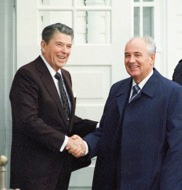 “The Last True Believer”
“The Last True Believer”

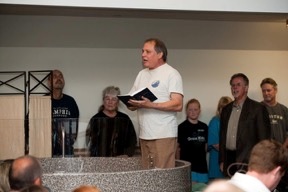 Taking Our
Taking Our Communion binds us together by the Spirit of God (1 Corinthians 10:17). I prefer to express this with a “common loaf” if at all possible. Breaking bread with my brother or sister is not privatistic like eating a tiny morsel of bread with my eyes closed can be.
Communion binds us together by the Spirit of God (1 Corinthians 10:17). I prefer to express this with a “common loaf” if at all possible. Breaking bread with my brother or sister is not privatistic like eating a tiny morsel of bread with my eyes closed can be.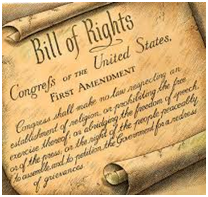 “Congress shall make no law respecting an establishment of religion, or prohibiting the free exercise thereof, or abridging the freedom of speech, or of the press; or the right of the people peaceably to assemble, and to petition the Government for a redress of grievances.”
“Congress shall make no law respecting an establishment of religion, or prohibiting the free exercise thereof, or abridging the freedom of speech, or of the press; or the right of the people peaceably to assemble, and to petition the Government for a redress of grievances.” It was barely a blip on the news in America. On Pentecost Sunday (June 5) two gunmen entered worship services at St. Francis Catholic Church in the town of Owo in southwestern Nigeria.
It was barely a blip on the news in America. On Pentecost Sunday (June 5) two gunmen entered worship services at St. Francis Catholic Church in the town of Owo in southwestern Nigeria. Attacks on pro-life counseling centers have been in the news since the U.S. Supreme Court returned the debate over abortion laws back to the states.
Attacks on pro-life counseling centers have been in the news since the U.S. Supreme Court returned the debate over abortion laws back to the states.


 Don has been a member of the clergy in the Long Beach, California area since
Don has been a member of the clergy in the Long Beach, California area since The birds of the sky nest by the waters;
The birds of the sky nest by the waters; Back the Badge
Back the Badge
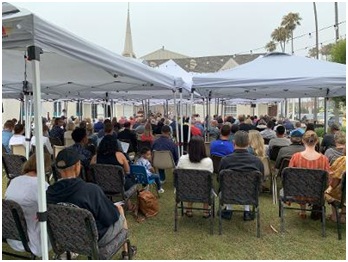 Men and women from the congregation offer prayers to open our church services. I thought this prayer given June 12 was especially excellent. I share it slightly abbreviated. Thanks to Andreas Gratopp, who gave me the text.
Men and women from the congregation offer prayers to open our church services. I thought this prayer given June 12 was especially excellent. I share it slightly abbreviated. Thanks to Andreas Gratopp, who gave me the text.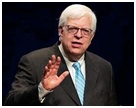 “[Jesus] read the Old Testament. It’s strange that many Christians don’t read what Jesus read.”
“[Jesus] read the Old Testament. It’s strange that many Christians don’t read what Jesus read.”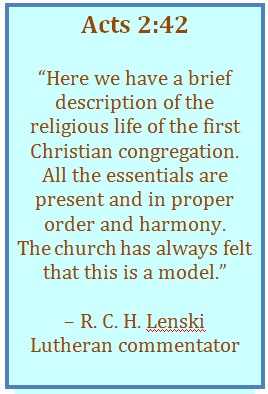 2. The Fellowship
2. The Fellowship 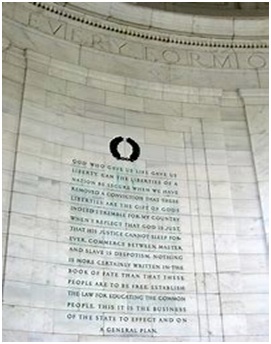
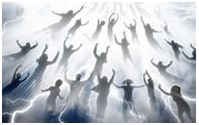 For Me, The “Rapture” Is Up in the Air!
For Me, The “Rapture” Is Up in the Air!
 PFC Winder crawled under fire to reach wounded soldiers. In spite of his own injuries he treated one wounded soldier. Before he could reach another he was mortally wounded.
PFC Winder crawled under fire to reach wounded soldiers. In spite of his own injuries he treated one wounded soldier. Before he could reach another he was mortally wounded.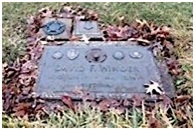 For his selfless effort to serve the fallen, he was awarded the
For his selfless effort to serve the fallen, he was awarded the 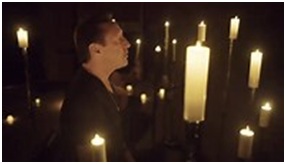 John Lennon’s “Imagine”
John Lennon’s “Imagine”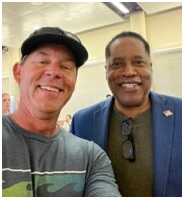 Son-in-law Rick Turner was waiting with friends at the San Antonio airport for a flight to LA when they noticed recent California gubernatorial candidate and talk radio personality
Son-in-law Rick Turner was waiting with friends at the San Antonio airport for a flight to LA when they noticed recent California gubernatorial candidate and talk radio personality 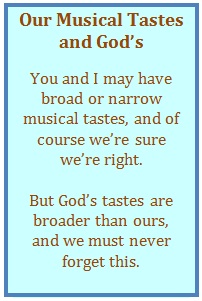 The theological term for this worship experience is “Whoa!”
The theological term for this worship experience is “Whoa!”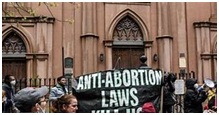 Protecting Places of Worship from Disruptive Protestors
Protecting Places of Worship from Disruptive Protestors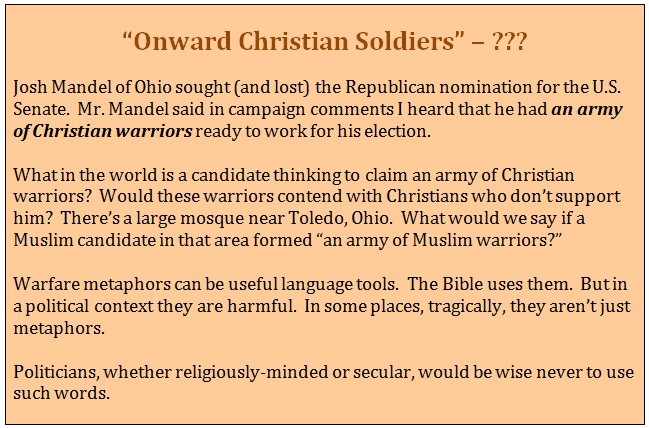 [/vc_column_text][/vc_column_inner][/vc_row_inner][vc_row_inner][vc_column_inner][vc_column_text]
[/vc_column_text][/vc_column_inner][/vc_row_inner][vc_row_inner][vc_column_inner][vc_column_text]
 For Me, The “Rapture” Is Up in the Air!
For Me, The “Rapture” Is Up in the Air!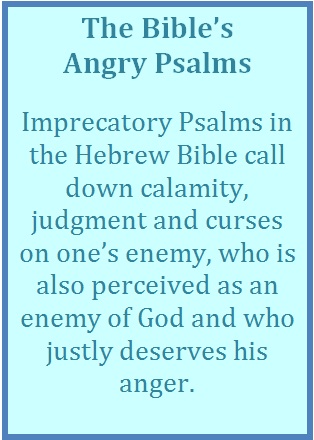 We start with one kind of psalm that is incredibly relevant given the bloodshed in Ukraine. We call them “Imprecatory Psalms” – psalms that call for death and pain on those who work evil in the world (“Imprecation” – what invokes a curse or pronounces a judgment). “Pour out your indignation on them, and let your burning anger overtake them” – Psalm 69:24.
We start with one kind of psalm that is incredibly relevant given the bloodshed in Ukraine. We call them “Imprecatory Psalms” – psalms that call for death and pain on those who work evil in the world (“Imprecation” – what invokes a curse or pronounces a judgment). “Pour out your indignation on them, and let your burning anger overtake them” – Psalm 69:24. [/vc_column_text][/vc_column_inner][/vc_row_inner][vc_row_inner][vc_column_inner][vc_column_text]
[/vc_column_text][/vc_column_inner][/vc_row_inner][vc_row_inner][vc_column_inner][vc_column_text] Pastors, Churches, Veterans, Active Military Personnel, Others who should be interested –
Pastors, Churches, Veterans, Active Military Personnel, Others who should be interested – Imagine a chaplain putting his own life at risk during a serviceman’s final moments of life on the field of battle, leading the mortally wounded soldier in “The Lord’s Prayer.” Or providing solace to a soldier who has just lost his buddy in conflict. It happens.
Imagine a chaplain putting his own life at risk during a serviceman’s final moments of life on the field of battle, leading the mortally wounded soldier in “The Lord’s Prayer.” Or providing solace to a soldier who has just lost his buddy in conflict. It happens. My own denomination supports military chaplains through a ministry known as The Eagle Commission (
My own denomination supports military chaplains through a ministry known as The Eagle Commission (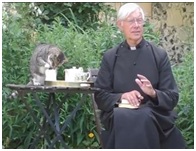 Dean of Canterbury Cathedral to Retire
Dean of Canterbury Cathedral to Retire Samaritans Purse
Samaritans Purse The Easter Hymn
The Easter Hymn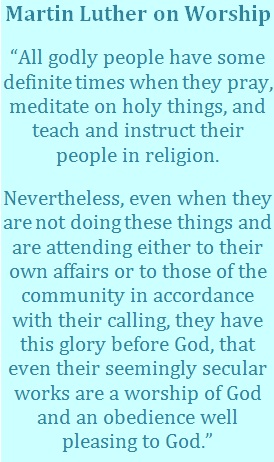 So we sing:
So we sing: Next month:
Next month:  “Democracy is the worst form of Government except for all those other forms that have been tried.”
“Democracy is the worst form of Government except for all those other forms that have been tried.”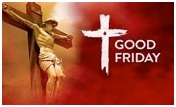 Good Friday is especially a day for reflecting on how we have “fallen short” of obedience to God (Romans 3:23). Here I reflect on the meaning of The Ten Commandments and offer a prayer for us to receive God’s forgiveness.
Good Friday is especially a day for reflecting on how we have “fallen short” of obedience to God (Romans 3:23). Here I reflect on the meaning of The Ten Commandments and offer a prayer for us to receive God’s forgiveness. “This is my body, given for you.
“This is my body, given for you.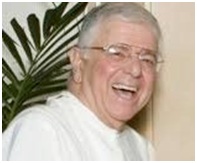 Once Again I Have Lost a Dear Friend
Once Again I Have Lost a Dear Friend Prophets Are Good for Business…
Prophets Are Good for Business… [/vc_column_text][/vc_column_inner][/vc_row_inner][vc_row_inner][vc_column_inner][vc_column_text]
[/vc_column_text][/vc_column_inner][/vc_row_inner][vc_row_inner][vc_column_inner][vc_column_text] Back the Badge
Back the Badge 
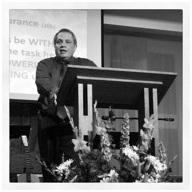
 A Renewed Paradigm for Worship—Revised
A Renewed Paradigm for Worship—Revised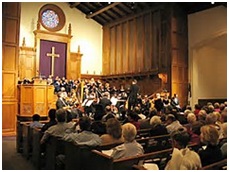 The church is never beyond the need for renewal, and I think renewal of our worship is especially needed now.
The church is never beyond the need for renewal, and I think renewal of our worship is especially needed now. “Smash and Grab” is the newest lawlessness. A group of thieves plan and execute an invasion of a retail business, steal as much as possible, and escape before law enforcement can respond.
“Smash and Grab” is the newest lawlessness. A group of thieves plan and execute an invasion of a retail business, steal as much as possible, and escape before law enforcement can respond. “Smash and Grab” isn’t a benign crime. It robs owners and workers of livelihood. An invasion robbery of a Home Depot store led to theft of sledgehammers and crowbars—destructive tools also capable of doing great bodily injury. It is a matter of time before many innocent people are hurt. Police Sergeant (ret.) Kevin Nishita was shot and killed while providing security for a TV crew in Oakland, California when the thieves hit.
“Smash and Grab” isn’t a benign crime. It robs owners and workers of livelihood. An invasion robbery of a Home Depot store led to theft of sledgehammers and crowbars—destructive tools also capable of doing great bodily injury. It is a matter of time before many innocent people are hurt. Police Sergeant (ret.) Kevin Nishita was shot and killed while providing security for a TV crew in Oakland, California when the thieves hit.
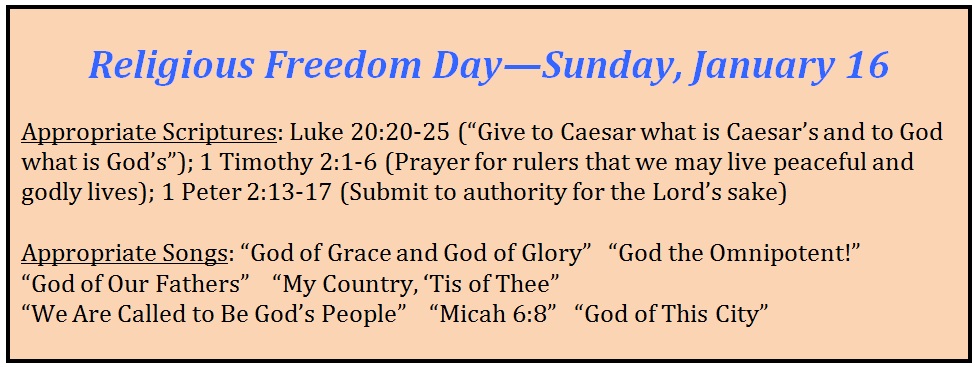 [/vc_column_text][/vc_column_inner][/vc_row_inner][/vc_column][/vc_row][vc_row css=”.vc_custom_1598373738095{border-radius: 3px !important;}”][vc_column][vc_column_text]
[/vc_column_text][/vc_column_inner][/vc_row_inner][/vc_column][/vc_row][vc_row css=”.vc_custom_1598373738095{border-radius: 3px !important;}”][vc_column][vc_column_text]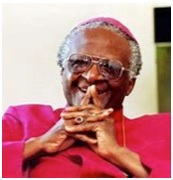 Anglican Archbishop Desmond Tutu died on December 26. He was a moral leader in bringing South Africa to reckon with the evil of government-mandated racial separation (apartheid). In 1984 he was awarded the Nobel Peace Prize for his nonviolent struggle against apartheid, and later played a key role in the segregationist policy’s downfall.
Anglican Archbishop Desmond Tutu died on December 26. He was a moral leader in bringing South Africa to reckon with the evil of government-mandated racial separation (apartheid). In 1984 he was awarded the Nobel Peace Prize for his nonviolent struggle against apartheid, and later played a key role in the segregationist policy’s downfall.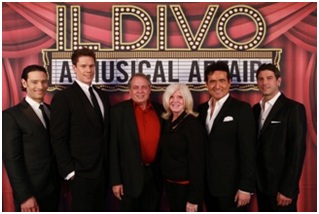 Often when I prepare to shut down my computer for the day, I listen to “The Lord’s Prayer” sung by the pop/opera foursome
Often when I prepare to shut down my computer for the day, I listen to “The Lord’s Prayer” sung by the pop/opera foursome Christ, by highest Heav’n adored;
Christ, by highest Heav’n adored;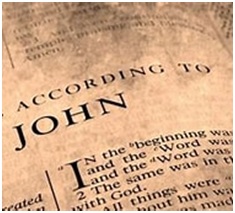 A Less-familiar Christmas Scripture
A Less-familiar Christmas Scripture Papyrus 66 may date as early as the early second century. It contains most of the Gospel of John. This page contains John 1:1-13 and part of verse 14.
Papyrus 66 may date as early as the early second century. It contains most of the Gospel of John. This page contains John 1:1-13 and part of verse 14. [/vc_column_text][vc_column_text]
[/vc_column_text][vc_column_text]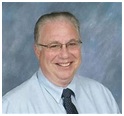 My Tribute to a Dedicated Pastor
My Tribute to a Dedicated Pastor
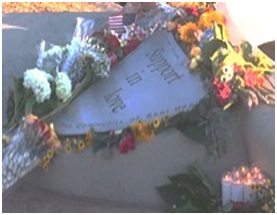 Why, O Lord, do you stand far off?
Why, O Lord, do you stand far off? This Thanksgiving, Give Thanks that You Live in America!
This Thanksgiving, Give Thanks that You Live in America! [/vc_column_text][vc_column_text]
[/vc_column_text][vc_column_text] Message of the Month
Message of the Month I have honored teachers for decades. When I was an active pastor, I would take time in worship services to honor and pray for teachers when a new school year would get underway.
I have honored teachers for decades. When I was an active pastor, I would take time in worship services to honor and pray for teachers when a new school year would get underway.
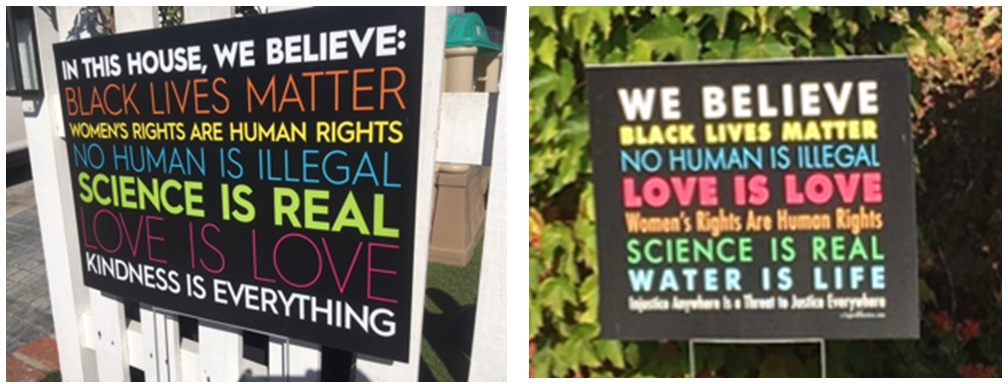

 [/vc_column_text][/vc_column_inner][/vc_row_inner][vc_row_inner][vc_column_inner][vc_column_text]
[/vc_column_text][/vc_column_inner][/vc_row_inner][vc_row_inner][vc_column_inner][vc_column_text]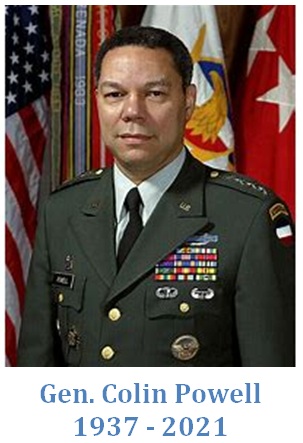 Colin Powell’s 13 Rules
Colin Powell’s 13 Rules